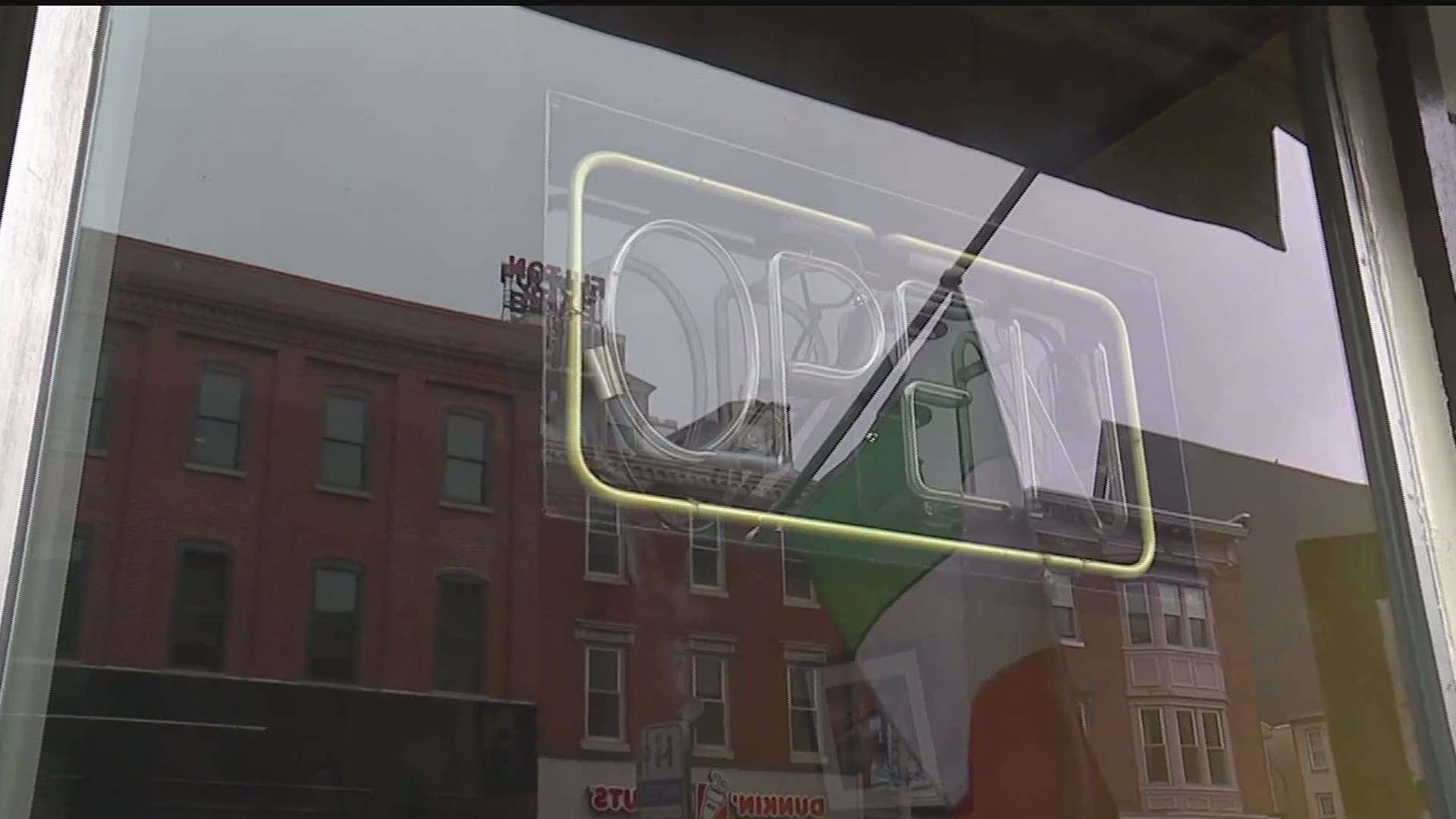HARRISBURG, Pa. — Governor Tom Wolf on Monday announced a $225 million statewide grant program to support small businesses that were impacted by the COVID-19 public health crisis and subsequent business closure order.
“As we continue to navigate the COVID-19 pandemic and shift our focus toward reopening our commonwealth, we need to help all Pennsylvanians recover. We need to provide assistance for those who were hurt by the pandemic and the resulting economic downturn,” Wolf said in a press release. “This new program will provide direct support to impacted businesses to cover operating expenses during the shutdown and the transition to reopening.”
The funding was developed in partnership with state lawmakers and allocated through the recently enacted state budget, which included $2.6 billion in federal stimulus funds through the Coronavirus Aid, Relief, and Economic Security (CARES) Act, of which $225 million was earmarked for relief for small businesses.
The Department of Community and Economic Development will distribute the funds to the Community Development Financial Institutions, which will then administer the funding in the form of grants.
Eligible businesses will be able to use the grants to cover operating expenses during the shutdown and transition to re-opening, and for technical assistance including training and guidance for business owners as they stabilize and relaunch their businesses.
The funds will be available through three programs:
- $100 million for the Main Street Business Revitalization Program for small businesses that experienced loss as a result of the governor’s March 19, 2020 order relating to the closure of all non-life-sustaining businesses and have or will incur costs to adapt to new business operations related to COVID-19;
- $100 million for the Historically Disadvantaged Business Revitalization Program for small businesses that experienced loss as a result of the business closure order, have or will incur costs to adapt to new business operations related to COVID-19, and in which socially and economically disadvantaged individuals own at least a 51 percent interest and also control management and daily business operations.
- $25 million for the Loan Payment Deferment and Loss Reserve Program, which will allow the CDFIs the opportunity to offer forbearance and payment relief for existing portfolio businesses that are struggling due to the impact of COVID, as well as shore up the financial position of the CDFIs that are experiencing significant increased defaults in their existing loan portfolios.
“I want to thank Governor Wolf for engaging leadership in the General Assembly to inform the process of moving federal aid out to those who have been most harmed by the COVID-19 pandemic," said state Senator John Blake (D-Lackawanna) in a statement. "I also want to thank the leadership of the Senate Democratic caucus who worked with our members to formulate a strategic plan for the deployment of nearly $4 billion in federal assistance.
“The Main Street Business Revitalization program is a reflection of that cooperation and leadership and it will meet Pennsylvania’s small business owners where they are, on Main Street, after nearly three months of lost or no sales. It will enable small business owners throughout the commonwealth to meet their insurance payments, rents, health insurance premiums, local taxes and other expenses that they otherwise could not meet due to lost sales.
"Finally, I want to thank the 17 CDFIs throughout the state as well as DCED for their professionalism, agility, urgency and dedication to getting this federal funding to the small businesses that need it most as quickly as possible.”
“The Main Street Business and Historically Disadvantaged Revitalization Programs will provide welcomed relief for mom and pop businesses in neighborhoods across the commonwealth," state Senator Vincent Hughes (D-Philadelphia/Montgomery) added. "Since this pandemic began, we have heard the needs of the auto body shops, the barbershops, the beauticians, the pizza shop owners, the soul food establishments and other businesses in our communities. The needs of these businesses that were unable to get much needed help from other state and federal programs were a priority in our Senate Democratic Caucus’ April 29 PA CARES Program announcement.
“For months, my office has worked with a network of trusted community organizations that have a proven track record of working with our small businesses, the CDFIs, to find a solution to assist our neighborhood businesses. I believe these programs are that solution. There is still more work to be done, but these programs are a win for Pennsylvania and its small businesses.”
“Small businesses bore the brunt of the economic impacts of the pandemic. This investment is a good first step toward their recovery and the recovery of communities across the commonwealth,” said House Democratic Leader Frank Dermody. “This program will benefit multiple diverse industries, brought forward from many partners in the legislature, including Reps. Jared Solomon, Morgan Cephas, Jake Wheatley, Ryan Bizzarro, Chris Sappey and Melissa Shusterman.”
The PA CDFI Network is a group of 17 PA-based community development financial institutions that primarily provide financing options for small businesses.
"We are pleased to work with the governor on the COVID-19 Relief Statewide Small Business Assistance program to provide economic opportunities for those affected by the COVID-19 pandemic," said James Burnett, vice chairman of the PA CDFI Network. "We know how important it is to support the smallest, most vulnerable businesses throughout the commonwealth, including historically disadvantaged and main street businesses.”
Source: Office of Governor Tom Wolf

